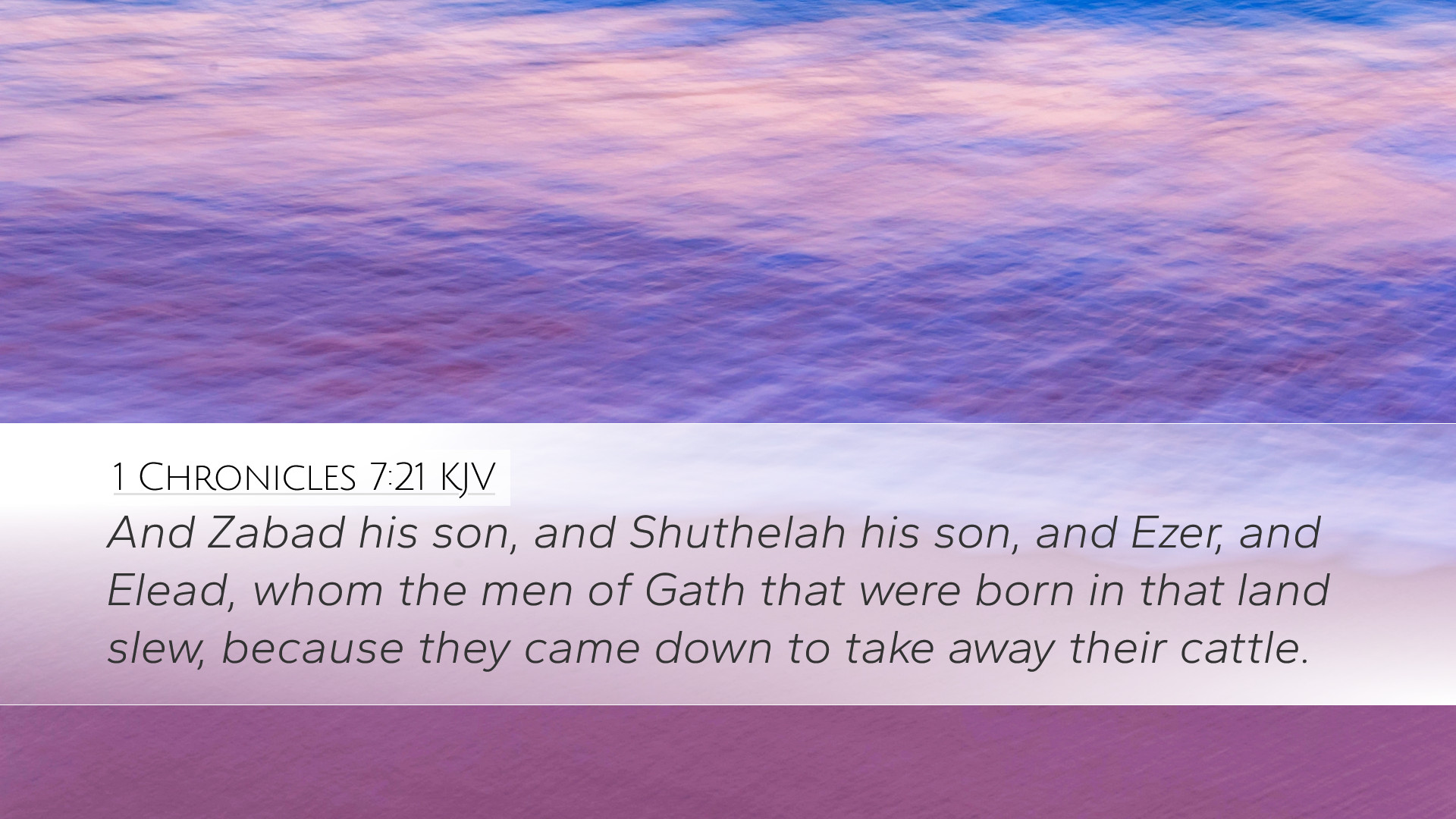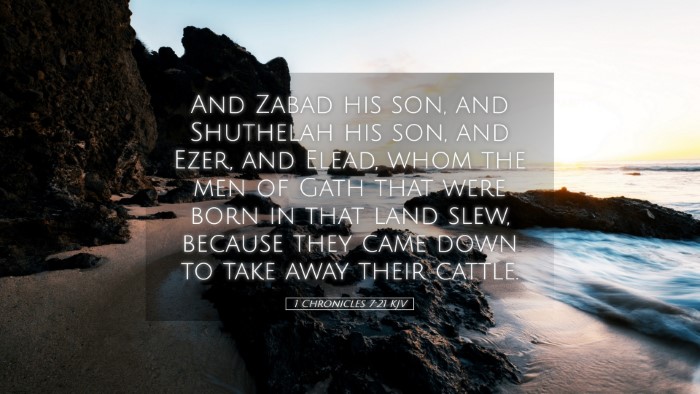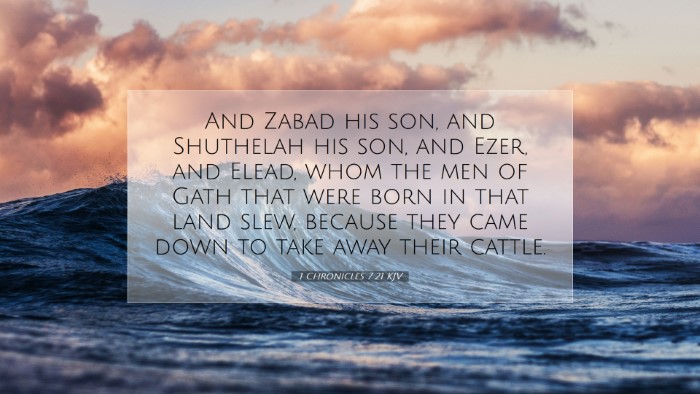Commentary on 1 Chronicles 7:21
Verse: "And the sons of Benjamin; Bela, and Becher, and Jediah." (1 Chronicles 7:21)
Introduction
This verse is part of a genealogy that lists the descendants of Benjamin, one of the twelve tribes of Israel. In the context of Chronicles, genealogies serve not only to trace lineage but also to affirm the faithfulness of God in maintaining His covenant with Israel. The Chronicler emphasizes the importance of the tribes for the restoration of Israel post-exile, which gives this genealogy a particular significance.
Contextual Analysis
1 Chronicles 7:21 finds itself in a broader narrative that frequently touches upon the fate of the tribes of Israel, particularly after their return from Babylonian exile. The genealogy serves multiple purposes, including:
- Preservation of Identity: Establishing a clear connection to the past, identifying descendants who have a rightful place in Israel’s future.
- Theological Emphasis: The inclusion of these names underscores the faithfulness of God in maintaining His people, reminding the exiles of their divine heritage.
- Covenantal Significance: The reference to Benjamin signifies a reminder of God’s promises and the roles of these families during the time of the monarchy.
Names and Their Significance
The three names mentioned—Bela, Becher, and Jediah—each represent significant familial lines within the tribe of Benjamin.
- Bela: Considered the firstborn of Benjamin, he symbolizes the headship and birthright of this tribe. Matthew Henry notes that Bela represents might and valor, often characterized by warriors in Scripture.
- Becher: While less prominent than Bela, Becher signifies another family line, which emphasizes the continuation of Benjamite heritage. Albert Barnes highlights Becher's connection to the Bethlehemite clan, rooted in the legacy of King David.
- Jediah: This name might be less familiar, but it represents the eventual descendants involved in priestly roles, showcasing continuity and service in worship. Adam Clarke suggests that Jediah’s line speaks to the civic responsibilities assumed by Benjamin in Jerusalem.
Theological Implications
This genealogy, while perhaps tedious to read, exists to remind readers of the faithfulness of God. God’s unwavering attention to detail in preserving the lineage of His chosen people reflects His covenantal promises. The Chronicler conveys that every branch, every name, matters in the economy of God.
Key Themes:
- Faithfulness of God: The listing of Benjamite names shows that God remembers His covenant with the patriarchs, even in the valleys of despair.
- Identity and Continuity: In a time of uncertainty post-exile, these names provide a sense of stability and belonging for the returning exiles.
- Role of the Tribe of Benjamin: Known for their military prowess and loyalty, Benjamin will play a significant role in the eventual return to power of Israel as a coherent nation.
Practical Application
For modern readers, particularly pastors and theologians, the genealogy serves as a reminder of the importance of stewardship over spiritual heritage. Understanding the deep roots of faith can empower contemporary Christian communities to recognize their place in God’s overarching story. It draws attention to the need for diligent study of Scripture, wherein every name holds importance in God’s narrative.
The history reflected in this genealogy can encourage congregations to remain faithful in passing down their heritage, nurturing a sense of belonging and identity within both local and global Christian communities.
Conclusion
1 Chronicles 7:21 may appear as a simple listing of names, yet it encapsulates deep theological truths and historical significance for God’s people. By examining the nuances of this verse, readers can gain a fuller appreciation of God's faithfulness and the importance of each person's role in His divine plan. In understanding the inscribed names of Bella, Becher, and Jediah, we recognize our place in a much grander story—a narrative of redemption, restoration, and hope.


